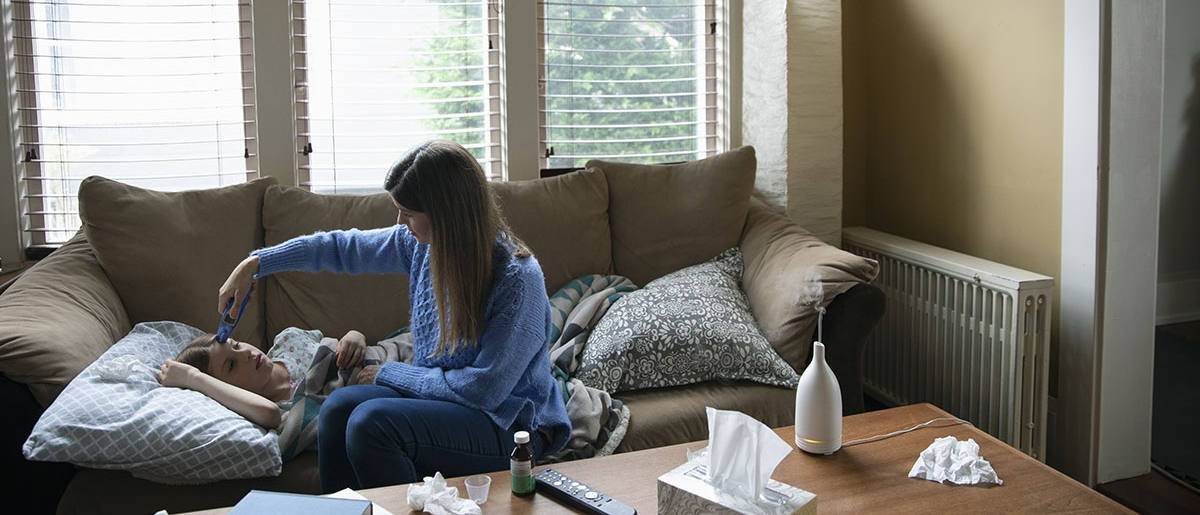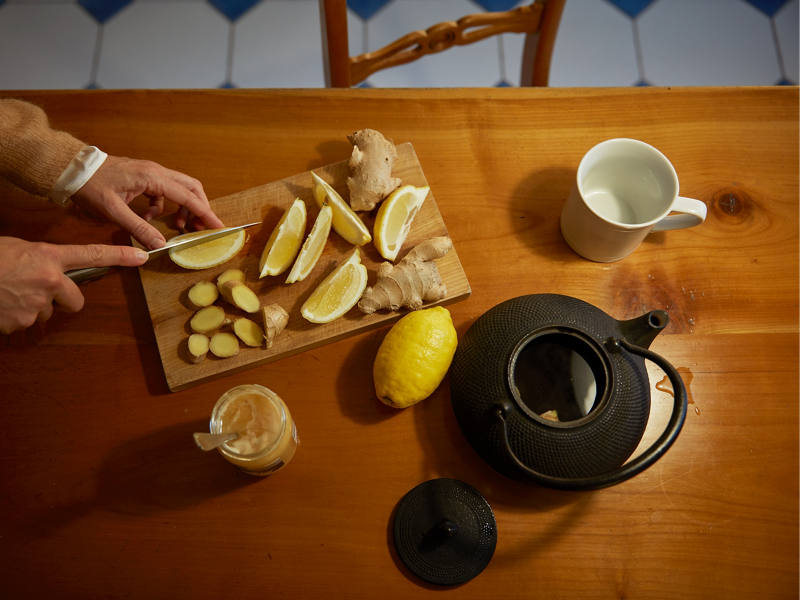Reduce flu infections: tips for families

For most children, the time when they start catching viruses begins at the latest when they start kindergarten. This, in turn, represents a constant risk of infection to the rest of the family too. But measures can be taken to minimise the danger and protect the family from virus infections.
School time is flu time
Once their children start nursery, playgroup or kindergarten, parents really discover their nursing role. Stomach bugs, coughs, colds, flu – when one of the children has caught something, the illness makes the rounds in no time.
Infection potential for the family
However, the child’s illness has the potential to infect the whole family. In most cases, infectious germs are brought home that are unknown, or no longer known, to the parents' immune system. If, on top of this, the parents are stressed or sleep deprived, the risk of infection is even greater.
How to prevent flu
There is no universal cure for viruses. But there are various ways of reducing the risk of infection:
Clean regularly
Because viruses spread quickly on objects shared by the whole family, surfaces like door handles, taps and toilet bowls should be wiped down on a regular basis.
Don’t sneeze into your hands
Always cough and sneeze into a paper tissue or your elbow – and not into your hands. In addition, the tissue should only be used once and then immediately disposed of.
Avoid physical contact
Whenever possible, avoid direct physical contact during an infection. This includes shaking hands or hugging.
Get enough sleep
Sick children often wake up at night and need care. Nevertheless, it’s important for parents to get plenty of sleep. Going to bed early or taking turns with childcare can help.
Airing the room
Frequently airing the room for a few minutes will not only lower the concentration of the virus, but also minimise the amount of dry air in the room.
Wash at high temperatures
Laundry and dishes should be washed at 60-90°C. Viruses are destroyed by these temperatures and the effects of the detergent.
Sleep in own bed
For hygiene reasons, children should sleep in their own room or bed if possible.
Wash hands
Washing hands frequently with soap is the best and most effective weapon against cold viruses – especially before eating together. After all, it’s almost impossible to avoid touching things that infected family members have touched. Viruses are often transmitted through objects such as bottles, butter packaging and bread baskets.
How do viruses spread?
Even the best hygiene practices won't succeed in completely banishing germs. How viruses are transmitted:
- Droplet infection: via droplets in the air, i.e. through coughing, sneezing or talking
- Contact infection: through direct contact with the sick person. Infected persons are contagious for 7 to 10 days.
- Smear infection: objects used by the patient can carry viruses, e.g. cups, toothpaste tube, etc.
Indeed, our immune system has plenty to do. Fortunately, there are ways of strengthening our immune system naturally – and they’re not even that complicated.


